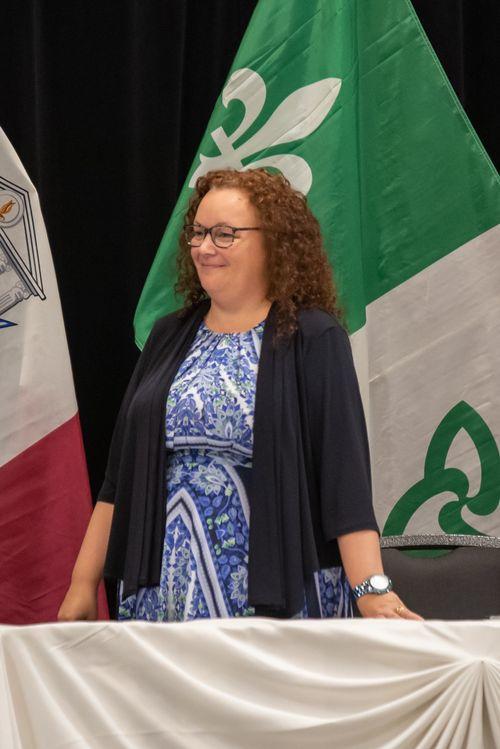—Manon Denis-LeBlanc, vice-dean of Francophone affairs at the Faculty of Medicine.
Dr. Manon Denis-LeBlanc has always valued the Francophonie and Francophiles in every aspect of her life. “If there is one thing I’ve come to realize over the past few years, it’s that Francophiles have an important role to play in the survival of the Francophonie in Canada. And my work is to promote this Francophonie,” says the vice-dean of Francophone affairs at the Faculty of Medicine.
Every year, she strongly encourages medical students to practise the language of Molière as much as possible. “Several among you decided to study in Ottawa in the hopes of making the most of Canada’s capital and its bilingualism, and I congratulate you on this wise decision. However, I must warn you about something peculiar about your Francophone friends: of all Canadians, they seem to be the most polite. And they have the bad habit of switching to English as soon as they hear your accent or think you may be struggling with a term.”
I invite you to resist. Do not let them stop you from practising!
“Insist on continuing the conversation in French! For my part, I promise to work on getting them to ditch this bad habit,” she said, smiling.
Make practising French a daily goal.
Dr. Denis-Leblanc suggests making the most of every opportunity to practise: whether you order in a restaurant, or speak to colleagues, or decide to take a continuing education workshop in French at a convention. She stressed that practising French is much more than repeating sentences learned by rote in the classroom. “The only reason that we, as Francophones, learn to speak English so easily is that we are constantly required to use it!”
Hence, she counsels those who want to learn French to never hesitate and to jump right in, regardless of the situation! And don’t worry about small errors in grammar or vocabulary: what’s important is to practise.
Improve your language proficiency by reading funny stories, listening to radio, or watching TV in French.
Manon Denis-LeBlanc often recommends the excellent series Toi & moi, which is set in the Ottawa area and offers a humorous take on cultural differences related to language. She who taught herself English as a child by reading sections of novels aloud says that this method can lead to surprising results!
Don’t be intimidated by how you think your accent sounds
“Everyone has an accent,” she said. “So why should you get hung up on this detail — just go for it!”
Pride is the most important thing!
Be proud to be learning French. Proud to be different. Proud of the advantage this gives you in your daily life. Proud of the incomparable asset of mastering both official languages, even if not perfectly. Proud of the difference that you can make in a Francophone’s day just by saying ‘Bonjour’!”
Manon Denis-LeBlanc firmly believes that this simple gesture can change the course of a relationship.
“In keeping with the example set by our University, let’s bravely promote, and take pride in, our bilingualism!”
